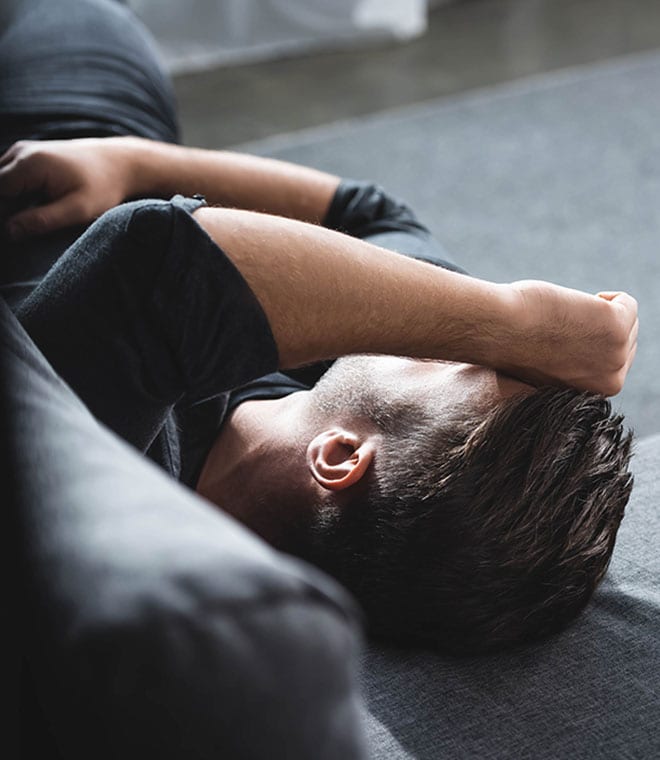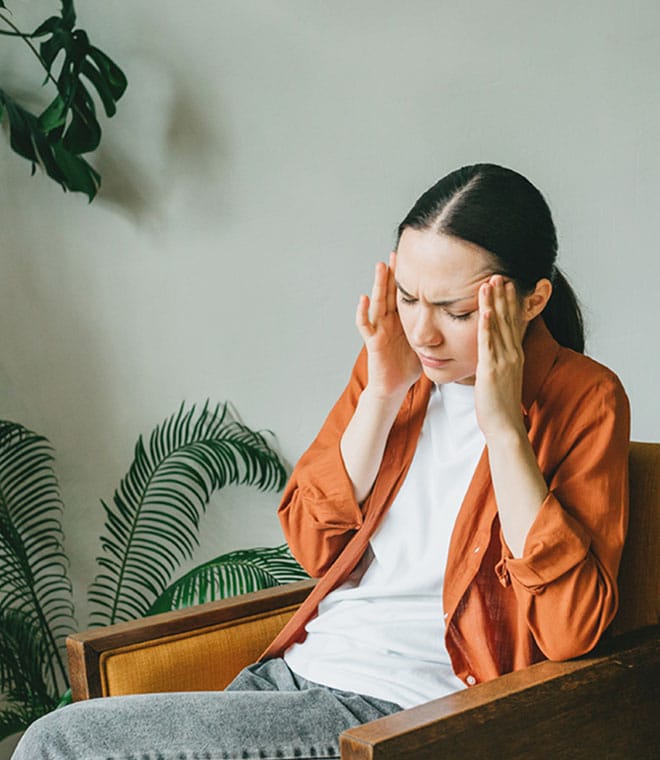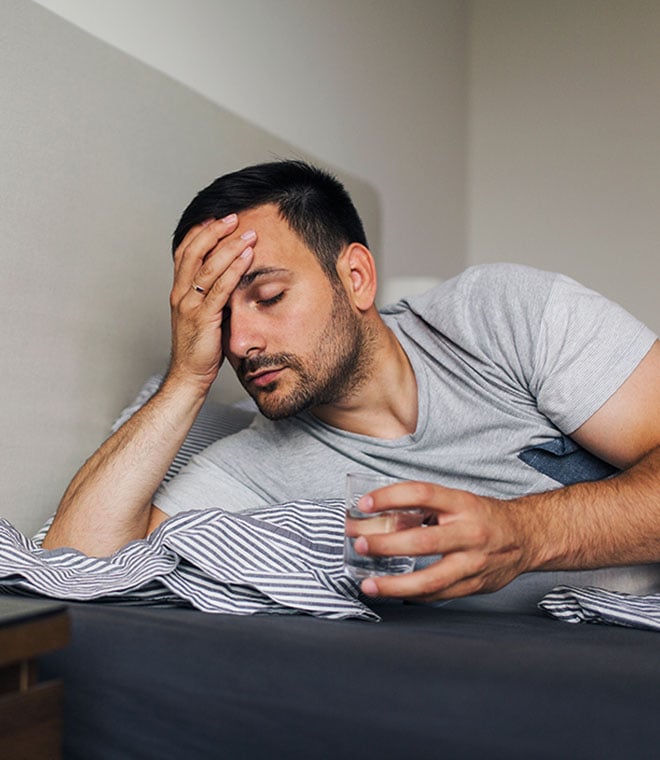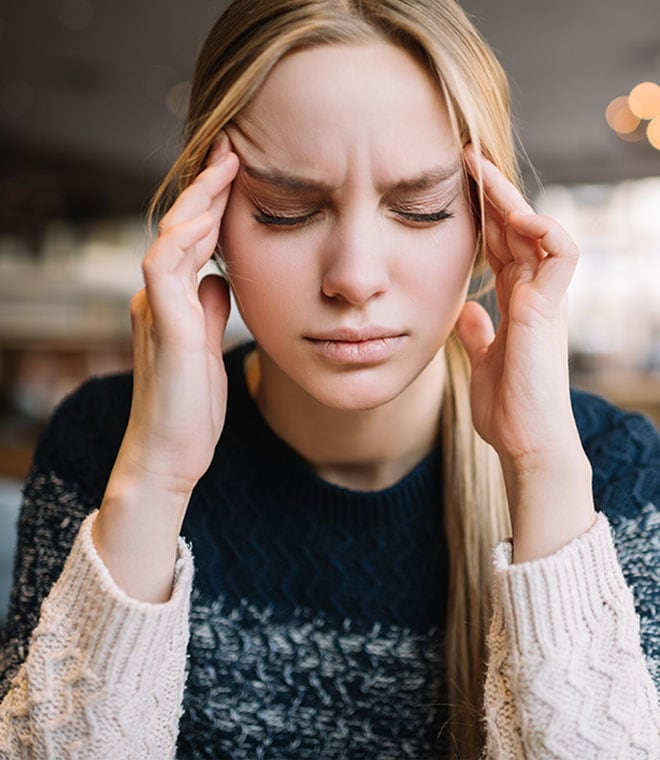Health
What are some common migraine triggers?
By Robert A. Fried, MD Feb 27, 2025 • 4 min
If you're one of the millions of Americans with migraine headaches, you know they can be intense and disabling. A migraine is the most common type of severe headache that prompts patients to seek medical attention. Scientists and researchers don't understand all of the causes of migraine headaches. However, many people with migraines find that their headaches seem to be brought on, or triggered, by one or more factors.
1. Stress
One of the most common triggers of migraine headaches is stress. Many people with migraines report having a lot of stress in the hours and days before their headaches begin. Stress can cause your shoulders and neck muscles to tighten, contributing to head pain.
2. Hormones
Migraines are much more common in women than in men, and fluctuations in the hormone estrogen (around the time of menstrual periods and during pregnancy, for example) can prompt migraines in some women. Taking birth control pills can also make migraines worse, although some women experience fewer headaches when they’re on the pill.
3. Diet
There are many foods that can trigger migraines in some people. The exact connection between diet and migraine headaches is not well understood, and there is a lot of disagreement about what foods might trigger migraines. Everyone's triggers are different, but people with migraines are often advised to avoid several types of food, including:
- Aged cheeses
- Artificial sweeteners, such as aspartame
- Cured meats, including hot dogs and ham
- Foods containing the preservative monosodium glutamate (MSG)
- Pickled and marinated foods
Some people with migraines find they may be sensitive to other foods as well.
4. Alcoholic andcaffeinated beverages
Different types of beverages may be migraine triggers. Alcoholic drinks, especially wine, may trigger a migraine attack. Caffeine is also often considered a trigger. However, research suggests that it may depend on the amount you consume. Too much caffeine or withdrawal from too little caffeine could lead to headache symptoms.
Monitoring your caffeine intake also includes paying attention to certain foods you eat, including chocolate. Dehydration, which can result from consuming too much caffeine, is another potential migraine trigger for some people. You should also examine other ingredients present in your drink that could be triggers, including artificial sweeteners.
5. Environmental triggers & weather changes
For certain people, specific environmental factors can act as migraine triggers. These may include flashing or bright lights, strong smells and loud noises.
Some people with migraine headaches notice that changes in the weather, such as storms, changing barometric pressure and temperature changes seem to trigger their migraines.
6. Sleep disruptions
Changes in sleep patterns, such as getting too much or too little sleep, might prompt a migraine for some people. People who experience migraine attacks often have disrupted sleep. Sleep disorders may also worsen migraine symptoms.
7. Certain medications
Some prescription medicines can prompt or worsen migraine headaches. Even over-the-counter and prescription drugs for migraines, if taken too often, can cause a headache rather than pain.
Because everyone has different triggers, people with migraines are often asked to keep a "headache diary," where they write down the details of each headache. This includes how long it lasts, what they ate and did before it started, how well the treatment worked, as well as any other important details. This information can help you and your healthcare provider figure out the best way to avoid migraine headaches and, if they occur, how best to treat them, either with over-the-counter migraine medication or prescription treatment.
Updated by Julie McDaniel, MSN, RN, CRNI, February 2025.
Sources:
- https://www.womenshealth.gov/a-z-topics/migraine
- https://americanmigrainefoundation.org/resource-library/hormonal-menstrual-migraine/
- https://www.mayoclinic.org/diseases-conditions/migraine-headache/symptoms-causes/syc-20360201
- https://medlineplus.gov/ency/patientinstructions/000420.htm
- https://familydoctor.org/condition/migraine/
- https://www.ninds.nih.gov/health-information/disorders/migraine#toc-what-is-migraine-
- https://www.ncbi.nlm.nih.gov/pmc/articles/PMC7468766/
- https://www.merckmanuals.com/professional/neurologic-disorders/headache/migraine#Pathophysiology_v1040353
- https://www.uptodate.com/contents/migraines-in-adults-beyond-the-basics
- https://www.healthychildren.org/English/health-issues/conditions/head-neck-nervous-system/Pages/Migraine-Headaches-in-Children.aspx
- https://americanmigrainefoundation.org/resource-library/caffeine-headaches/
- https://americanmigrainefoundation.org/resource-library/weather-and-migraine/
- https://www.sleepfoundation.org/physical-health/migraines-sleep




